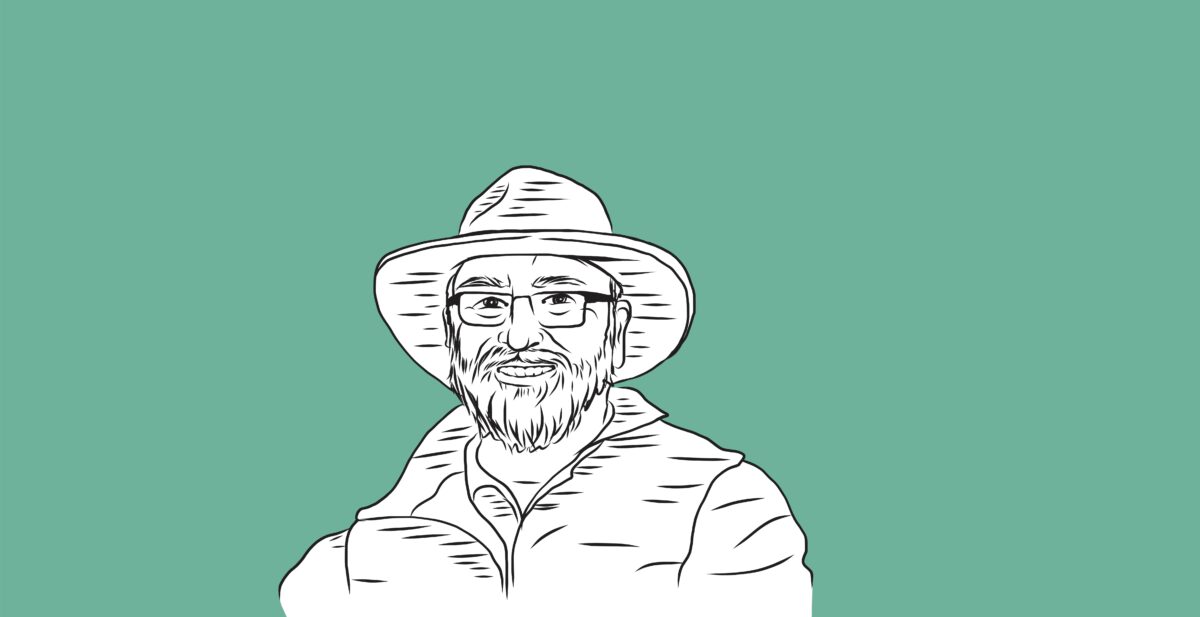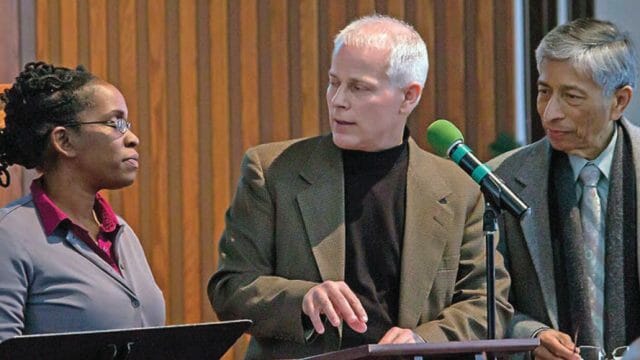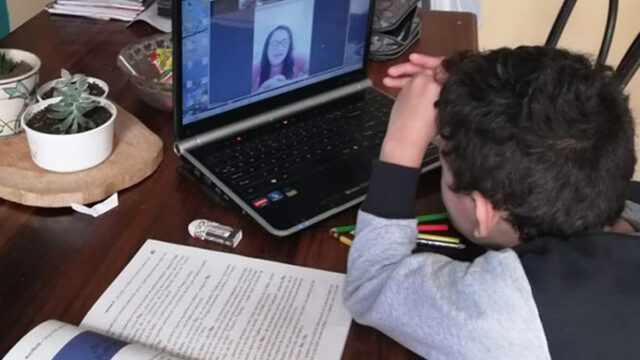“May I Tell You a Story?”

The phone is filled with shrieks and screams. The sounds of a woman’s life coming apart. High-pitched and insistent. Desperate! The sounds still jar her soul, but she listens carefully and then speaks calmly, slowly, and kindly, making notes on the name and home location for the woman whose life is exploding in pain.
Esther Birungi leads the Domestic Violence Unit for Ourganda, a small nonprofit organization in Uganda’s Rwenzori Mountains. Her job, the life she has purposefully chosen, is to save wives from the husbands who are beating them. Her middle name ought to be “Hope,” for that is what she brings to the highlands.
“No,” she’ll quickly correct you. “I’m not here to save the women. I’m here to save the families by helping the men become better husbands. With help, they will be safe husbands who treat their wives with honor.”
Saving families is in her blood, an illogical choice she made as she watched her father nearly beat the breath out of her mother. Esther was a desperate 17-year-old teenager then, determined to escape her father’s violence, racing with her younger sister toward an elusive hope.
Today Esther is 37, the wife of a loving husband and the mother of four children. She is also the heart of hope for hundreds of abused women in Uganda.
“I’m Babwisi,” she says with pride, denoting her people group. “That means I can listen well to most of the hill languages. That means that I know the abuse, and that I also know the answer.”
Call Esther
Esther’s phone rings often. “Too often,” she says. Every ring signals a strident call for help. Each answer brings Esther the screaming voice of a wife trying to hide from her husband’s drunken rage, or to an urgent neighbor woman crying for Esther to “come quickly before he kills her.”
“These are not bad men,” she says. “They are men who need to learn that hitting your wife is never acceptable, men who need to choose kindness so they can become good husbands.”
The Rwenzori Mountains are not an easy place to live. The mountains are steep, the trails are narrow and windy, clean water must be carried from miles away, and houses are made from dirt that caves away when the clouds bring rain. No one has a bicycle. Alcohol is cheap. Happiness seldom happens. Screaming is common.
When a woman is being beaten, she has few options. None of them good. If she runs away, she will be beaten even harder when she returns. If she goes home to her mother and father, they will return her to the husband who bought her with a dowry price. And the beatings will continue. If she chooses to call the police, there may not even be a phone number for her to call. The authorities have few resources and require a 45,000-shilling fee to cover the taxi fare for them to respond to her screams. No one has that much money.
Today there is a better option. Call Esther. There is at least one small flip phone in the village, and everyone has Esther’s number.
“Call me,” she says. “I’ll come. I’ll confront your husband. If he refuses to stop beating you, I’ll pay for the police to take him away. Then I’ll pay the jail fee, so you can have peace at home.”
The Kindness Contract
At first no one believed her. Until the day she arrived at Marta’s house and confronted Jonas, the husband with a bloody fist.
“Will you stop beating your wife?”
“Who are you to stand there and talk to me about my life and my wife? She is my property, and I’ll beat her if I choose. You cannot stop me.”
“I am stopping you right now,” Esther continues calmly, “or you will be in jail tonight.”
Jonas swore loudly, not really believing, but wondering if this interfering woman might have connections with the jail. Later that evening the police arrived on a boda-boda motorcycle taxi and took him away.
The next morning Esther was at the jail, smiling kindly and asking to see Jonas.
“This is a ‘ManKind contract’ for you to sign,” Esther said as she handed Jonas the paper. “Sign it, and you are promising to be kind to your wife. You are promising not to beat her anymore, but to treat her with kindness. Sign the contract, and I will take you home.”
Jonas was the first to sign the kindness contract and join the new ManKind Club. That was nearly two years ago. Since then, the ManKind Club has grown to include more than 50 men, and domestic abuse in the mountain villages has been reduced by 50 percent.
“No one thought this could happen,” say the leaders of Ourganda, the nonprofit that employs Esther. But kindness changes everything.”
More Than Intervention
Members of the ManKind Club, 50 husbands who have signed the pledge, have helped Esther confront 630 abusive husbands. They also visit the men who’ve been taken to jail, bringing them food, blankets, water, clean clothes, and whatever else the men need. While there they share the contract, offering forgiveness, prayers, support for overcoming addiction, and another chance for the men to return home and learn to become better husbands.
“Keep choosing kindness,” they say.
At home, back up on the mountain, the 50 women of the Soul Sisters Club provide food, water, and emotional encouragement for battered wives.
“Keep choosing kindness,” they say.
Esther, and other Ourganda leaders, offer much more than intervention. They make sure each village has access to nearby pure water. They provide first aid and health education, and have even covered the medical expenses for 60 essential surgeries.
“Empty lives often lead to alcohol and violence,” an Ourganda leader says, “so we are providing microfinance options and helping families and communities develop small businesses that give men and women a new sense of personal worth.”
Knowing that she is challenging people to make major changes, Esther also leads three-day seminars on love and responsibility for teenagers. Those were so well received that she began inviting adults to attend.
“From the start, it’s been a success,” writes journalist Bruce Benway. “Over the course of three weeks, 12,000 people showed up. The women, beaten and bruised, sitting next to the men who have beaten and bruised them. Everyone waiting to hear what Esther has to say about love and respect, kindness and courtesy, all the things she talks about in her home visits.”
“Change starts with each of us,” Esther says. “If we want to change from abuse to freedom, we all need to take a stand today!”
The houses are still mud, but happiness is happening.
Keep choosing kindness!








